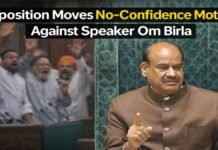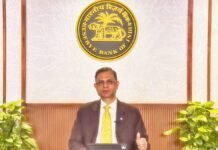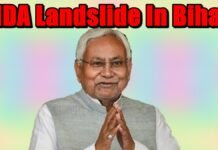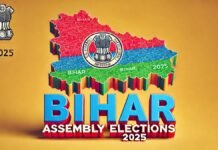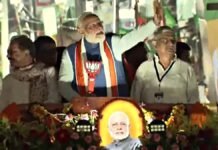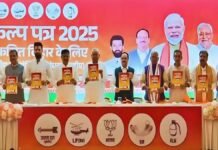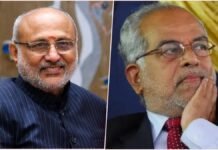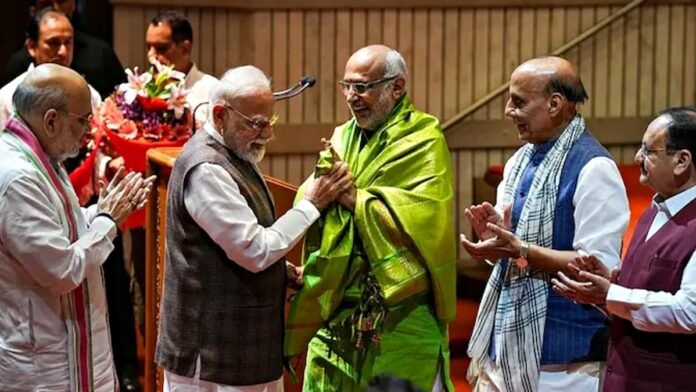
Key Points:
- CP Radhakrishnan elected as India’s 15th Vice President with 452 votes against opposition’s B Sudershan Reddy (300 votes)
- 27 more votes than NDA’s expected strength of 425 MPs suggests significant cross-voting from opposition ranks
- 98.2% voter turnout recorded with 767 MPs casting ballots out of 781; 15 votes declared invalid
- BJP claims conscience voting by opposition MPs, particularly from Jharkhand and Maharashtra where Radhakrishnan served as Governor
- INDIA bloc maintains unity claim despite numerical shortfall raising questions about internal discipline
New Delhi: The results of India’s Vice Presidential election held on September 9, 2025, have delivered a stunning victory for NDA candidate CP Radhakrishnan while exposing potential fissures within the opposition alliance. The 67-year-old former Governor secured 452 votes against opposition candidate Justice B Sudershan Reddy’s 300 votes, winning by a commanding margin of 152 votes.
Numbers Don’t Add Up: Cross-Voting Allegations Surface
The election results have triggered intense political speculation as Radhakrishnan received 27 more votes than the NDA’s calculated strength. With the alliance commanding support from 425 MPs in both Houses of Parliament, the additional votes point to significant cross-voting from opposition ranks.
The electoral math becomes even more intriguing when factoring in external support. The YSR Congress Party (YSRCP) with its 11 MPs had announced support for Radhakrishnan, theoretically giving the NDA 436 votes. However, the final tally of 452 votes suggests at least 16 additional opposition MPs broke ranks to support the NDA candidate.
Union Minister Piyush Goyal attributed the surplus votes to growing trust in Prime Minister Narendra Modi’s leadership, claiming the results demonstrate that “opposition leaders also stand with the progress of the country”. BJP’s chief whip Sanjay Jaiswal went further, asserting that approximately 40 opposition MPs voted for Radhakrishnan following their conscience.
Strategic Abstentions Complicate Opposition Math
The electoral dynamics were further complicated by strategic abstentions from several regional parties. Seven MPs from Biju Janata Dal (BJD), four from Bharat Rashtra Samithi (BRS), and one from Shiromani Akali Dal (SAD) chose not to participate in the voting, along with one independent MP.
This pattern of abstentions, combined with the cross-voting allegations, has raised serious questions about opposition unity within the INDIA bloc. Despite Congress claims that all 315 opposition MPs stood united, the mathematical shortfall tells a different story.
Radhakrishnan’s Political Journey and Regional Connections
The 67-year-old Radhakrishnan brings extensive political and administrative experience to the second-highest constitutional office. His political career began in 1998 when he won the Coimbatore Lok Sabha seat following terror attacks that created a political realignment in Tamil Nadu.
As a two-time MP and former BJP Tamil Nadu president, Radhakrishnan has served as Governor of Jharkhand (2022-2024) and Maharashtra (2024-2025). His gubernatorial experience in these states has led to speculation that MPs from these regions may have favored him due to personal rapport and administrative familiarity.
Invalid Votes Mystery Deepens Controversy
Adding another layer of intrigue, exactly 15 votes were declared invalid – the same number as the opposition’s shortfall from their claimed unified strength. Election officials have stated it’s impossible to determine with certainty whether these invalid votes came from opposition ranks or represented additional cross-voting attempts.
Returning Officer PC Mody announced the results after counting concluded, with the election recording an impressive 98.2% turnout as 767 out of 781 MPs cast their ballots.
Political Implications for INDIA Bloc Unity
The election outcome has exposed potential vulnerabilities in opposition coordination ahead of future electoral battles. While the Congress maintained that the opposition stood united, the numerical evidence suggests otherwise, potentially emboldening the NDA’s confidence in parliamentary proceedings.
Radhakrishnan described his victory as a triumph of “nationalistic ideology,” emphasizing his commitment to making India a developed nation by 2047. His election fills the vacancy created after Jagdeep Dhankhar’s resignation in July 2025 due to health reasons.
The Vice Presidential election results have not only secured the NDA’s control over the Rajya Sabha chairmanship but also demonstrated the ruling alliance’s ability to attract support beyond its traditional base, raising questions about opposition strategy and unity going forward.



